Elm of False Dreams Read online
Page 2
‘Blow on that?’ Mima looked at the proffered horn with disgust. ‘That’s your idea of a reward for saving your life?’
‘It’s not just any old horn!’ the dwarf irately responded. ‘Haven’t you heard of the magical Mourning Horn?’
*
Chapter 5
The Mourning Horn
When a son loses a father, it is undoubtedly one of the worst experiences he will suffer in his life.
This is particularly true, however, when a father’s death results in the responsibility of kingship being suddenly thrust upon young shoulders.
The new King of Hestia found himself in this very position.
One dreadful day, he found himself surrounded by nothing but the articles of kingship to remind him how well and effortlessly his father had managed to rule their kingdom.
There was the Sword of Irrepressible Fire his father wielded against their enemies, expanding their lands and the reach of their power.
There was the Shield of Iron Walls, used to defend against any foe who foolishly sought to threaten the kingdom’s independence and bring it under another sphere of influence.
There was the Helm of True Dreams, a reminder that brilliance of mind and strategy, even alliances rather than war, provided the real route to power and prosperity.
The new king was well aware of all these attributes of wise kingship.
Given pride of place amongst these articles, however, was a simple box.
A box the new king had never seen before. And this was despite the many times his father had eagerly displayed and explained all the other objects associated with the role that would one day be his.
The new king opened the box; and was more surprised than ever when he saw it contained nothing but a simple drinking horn, made from the hollowed-out horn of a great bull.
Fortunately, his father had left him a piece of parchment setting out the reasons why the drinking horn was of such supreme importance to the new king.
The horn hadn’t been taken from just any bull, but from a truly magical one.
Indeed, as remarkable as it sounds, the bull himself had at one time being a great leader of men; an impressive warrior of stature who had proved himself time and time again on the battlefield.
This warrior’s emblem had been that of the bull, carried on his shield whenever he went to war: and in the midst of a ferocious battle, he would become as one with that emblematic bull, looming over his foes, his towering presence alone enough to strike fear into them. So suddenly did this transformation take effect that many of the enemy mistakenly believed that it was the emblem itself that had sprung into life.
Unfortunately, one fateful day even this fearsome warrior met his match, an obviously flawless warrior possessing the necessary skills to defeat even a magical bull. It was a cruel, unforgiving war, however; and so the dead lay out on the field of battle uncollected for days, sometimes even weeks. By the time the warrior’s men could search for his body, it had mainly rotted away, leaving little but his skeleton and the great horns to show where he had died.
Horn, of course, is rumoured to possess its own magical qualities. And so, somehow, the two horns of the magical bull were spirited away, ensuring they weren’t lost to the grave.
One was sold at great cost to a great king, who had it hollowed out and polished until it was one of the finest drinking horns around.
At first, of course, he was unsure of the powers it would grant him when he drank from it. And when he did finally drink from it, he was gravely disappointed.
It seemed to have no powers at all, until he used it one night to toast the memory and heroic actions of a dead ancestor. The ancient warrior appeared beside him, recounting a brave deed in his own past that cast new light on a problem the present king was mulling over at the time.
And so this is how the horn works: whenever you toast the brave exploits of an ancestor, that ancestor will appear before you and grant you the wisdom of his own experiences.
But, the old king specifically warned his son the new king, such an important device must never be misused. It must, rather, be used sparingly and wisely.
The dead don’t like being interrupted to pronounce on trivialities. Neither do they like being called one after the other, as if you are seeking only the advice of someone who agrees with you.
Naturally, the new king was soon dreaming endlessly of the amazing potentialities of such a wondrous object, a horn that could call up your dead ancestors.
He was amazed, too, that his father had kept its existence secret for so long from both him and his beloved mother.
Why, here was the perfect device for recalling his father to life once again, if only briefly. His heartbroken mother would be overjoyed to see and hold him once more.
She had taken to her rooms in mourning, refusing to celebrate even her forthcoming birthday. But the new king insisted that there should be a celebration.
For he intended to surprise her with the most amazing present anyone could possibly imagine.
*
Dressed entirely in black, and thickly veiled, the mourning queen mother presented a morose sight in an otherwise raucous celebration of her birthday.
Indeed, the only other person there unable to join in the celebrations sat at her side, Lord Ferus having been not only the old king’s right-hand man but also his oldest friend.
Aware of their unshakeable sadness at the old king’s loss, no one dared bring up mention of his past exploits, as was usual at such events. Everyone feared it would only remind them of a wisdom and skills no longer in existence.
At last, however, the new king rose to his feet, quieted the noisy hall, and proposed a toast to his father.
As he raised his drinking horn to his lips, everyone else in the hall raised their horns too, even the mourning queen, who briefly lifted her veil to bring the drink to her own mouth.
Seeing this, the new king smiled in anticipation, already imagining how surprised and overjoyed she would be when the old king himself appeared in the hall.
She would weep, but in joy, as she threw her arms about him once more. And he too, naturally, would warmly embrace his father. He would speak to him once more, this time of all those things he wished he had spoken of while his father had been alive.
Yet there was no sign of the old king, as the new king had intended.
He was puzzled: how was the magical horn supposed to work?
Was it, perhaps, that he had conducted the toast improperly?
He decided to try again, but this time by proposing a toast to the renowned exploits of the old king’s own father.
Again, everyone followed him in toasting the great man’s achievements.
And again, there was no sign of the old man.
The horn wasn’t magical at all!
Had it all been a trick, a cruel joke played upon him by his own father?
Lord Ferus must have seen the new king’s bewildered frown. For the lord spoke next, flattering the new king’s wisdom in realising that we must always celebrate the heroic ancestors of our kingdom. It is their brave deeds, after all, that have ensured the safety and wealth of the kingdom’s many citizens.
He went on to express his hopes that the new king would also appreciate the role he and his own heroic ancestors had played in ensuring the stability and success of the kingdom.
Naturally, the new king graciously accepted what was effectively Lord Ferus’s promise of allegiance, proposing a toast to the lord’s own father.
And as the magical horn touched his lips, the lord’s father appeared in front of the king, asking him how he could help a man of his own blood.
*
Fortunately, the king’s own sons and their sons after them always used the Mourning Horn far more wisely than he had.
And they never found any need to seek out the advice of a king who had inexplicably slain his own mother at her own birthday celebrations.
*
Chapter 6
Mima now looked at the horn with both awe and a desperate hunger to use it.
‘And this is the horn? The Morning Horn?’
‘Weren’t you listening at all to what I’ve been saying?’ the dwarf snapped back at her. ‘The Mourning Horn belongs to the Kings of Hestia!’
‘Then why tell me the tale?’ Mima snapped back.
‘Because bulls have two horns, of course! This is the other horn!’
He proudly raised the horn.
‘It has the same powers?’ Mima asked eagerly.
‘Of course not! If it did, I’d have told a tale about this horn, wouldn’t I?
‘Then it is just a useless piece of horn!’
The dwarf sighed, as if exasperated that he was having to explain so many things to such a foolish girl.
‘It’s one that you blow to call up the dead!’ he explained slowly, as if talking to an idiot. ‘And then it allows them to speak with you through the horn!’
*
As Mima continued to stare doubtfully at the proffered horn, the dwarf moved closer to her, raised the horn to his lips: and blew into its narrow mouthpiece as hard as he possibly could.
No sound came from the horn. Mima wondered if it were still blocked with dung.
‘I didn’t hear anything,’ she pointed out.
‘Then be thankful for that,’ the dwarf sneered, ‘otherwise it would mean you were dead!’
He handed the horn to her, indicating that she should place the mouthpiece in her ear.
She did as she was told, hearing instantly the sound of waves crashing on the seashore, as she had similarly heard when placing a large shell gathered from the oceans against her ear.
It was hardly the dead speaking to her, as the dwarf had promised.
‘Mima, when you hear me, I know you’ll try and find me – but it’s Cerissa you need to find! Find Cerissa before you come looking for me!’
Mima gasped. It was a man’s voice: a boy’s voice!
Aestus! Who else could it be?
She had been too young when he had died to remember what his voice sounded like – but he had also mentioned Cerissa, the girl responsible for his death!
The girl who every villager also thought was dead, as she had been exiled all those years ago and never heard from again
No one could survive on their own in the wilderness.
And yet, according to her brother Aestus, she was still alive.
The were-lion had survived, while her own brother lay dead!
Yet maybe, just maybe; it seemed Aestus believed this Cerissa might be able to lead Mima to her brother!
*
Chapter 7
The dwarf snatched the horn off Mima.
‘That’s long enough; you only dug me out of a pile of dung you should have cleaned up earlier! You didn’t really save my life!’
‘Please, please! Can’t I just listen a little longer? It’s so important!’
‘Of course it’s important! Anyone hearing messages from the dead think what they’re hearing is the most important message in their lives, don’t they?’
‘I suppose so,’ Mima admitted. ‘But my brother was telling me how to reach him and hel–’
The dwarf was holding out his hand for money.
‘We all have to live, don’t we?’
‘I can’t afford it!’
‘You can’t afford to hear the most important message in your life?’ he shook his head in mock disbelief. ‘Tut tut: what would your poor brother think?’
Mima bit her lip in frustration: what could she do?
*
The dwarf wouldn’t accept her donkey and cart as payment for another use of the horn.
He was wise enough to realise they weren’t hers to give away.
And so he had gone on his way, leaving Mima behind to ponder her options.
She could continue shovelling dragon dung for a living.
Or she could set off on a quest to find this Cerissa. And, eventually she hoped, her dead brother Aestus.
She threw her shovel away.
She uncoupled the donkey from the cart.
She climbed up onto the donkey’s back.
And she set out upon her quest. With every beggar she passed complaining of the stench she made.
*
Chapter 8
Of course, it would have been both far swifter and more glamorous to have pinched a dragon rather than a donkey.
But as she had quite honestly confessed to the disbelieving dwarf, she rarely came into contact with any dragons. Her job was purely to clean up after them.
Besides, stealing a dragon usually ended up with the thief being securely tied between two full grown dragons and being slowly and torturously torn apart.
Whereas stealing a donkey resulted in a slightly less painful death.
There was another ‘besides’ too: as she really wasn’t sure where she was heading, what was the point in getting there quicker anyway?
*
In the heat of the day, as she travelled along the road, the dung baked hard upon Mima’s skin.
Even the donkey seemed to be getting a little perturbed by the worsening stench, especially as people tended to stare at her as if she were the one to blame.
Naturally, Mima was constantly on the lookout for a river she could bathe in, yet every time she had found one the women washing their clothes in the streaming waters would chase her away in disgust. By the time the sun had finally set, even the camps of beggars were refusing her room to bed down for the night.
Of course, it wasn’t safe to sleep amongst beggars. Yet it was even more unsafe not to, for you left yourself open to attack from opportunistic brigands or hungry animals.
At last, she found someone who was prepared to sleep close by her, an old warrior with neither nose nor a full set of either eyes or arms.
‘Friends call me Detritus; not that I have many friends.’
He was huge, bear-like; he blundered around, intoxicated and unsteady on over-used feet. His remaining hand was like the blade of the spade Mima had used to clean up the edges of her cart whenever she had to wash it down.
He offered her a sip of his drink, which she refused. He offered her some of his mouldy, filthy bread, which she had no choice but to accept; she was hungry, having brought no food with her.
As they ate and prepared their beds of straw and grasses, he told her how he had come by his injuries during ten years of war against the Trojans.
He told her, too, how their enemies had resorted to using magic; a charm on the emblem of each shield that caused it to spring into life in the midst of the very fiercest battles. Thus they had had to fight not just soldiers, but also serpents, boars, multi-headed hydra.
Eventually, he explained, they had been left with no choice but to use magic to their own ends.
And so one of their wiliest commanders, Odysseus, had sought out the great witch Cerissa.
*
Chapter 9
Up until the mention of Cerissa, Mima had hardly been paying any attention to the old man’s tales of wars.
She had heard of the recently fought Trojan wars, of course, yet had never heard any mention of Cerissa in any of the countless tales told about it.
‘I never knew she was involved in the war,’ she admitted.
‘It was only towards the end that she became involved; yet, of course, it is precisely because of her involvement that the war came to an end.’
‘But I thought that Odysseus’s great horse had brought about Troy’s fall?’
‘Hah, that old rogue, he likes to take all the credit, certainly. But how do you think the horse came to life other than through Cerissa’s magic?’
‘Alive? I’ve never heard of the horse coming to life!’
‘What foolish tales have you been listening to, girl? Not the one were the Trojan’s are such fools that they drag a gift left by us into their city?’
He guffawed so loudly that Mim
a worried he would wake everyone around them, even though they had all pitched their own beds as far from her as they could manage.
‘If only our enemy really had been such fools! Maybe then we wouldn’t have taken ten years to beat them!’
He drank thirstily from his vase of wine.
‘But how could such a huge horse – it was a wooden horse, as I’ve heard, surely? – spring into life? That’s not possible – surely?’
‘Aye, it’s not supposed to be possible, I’ll grant you that girl. But, see, it wasn’t just of wood; just mainly of wood. And this was wood we collected from everywhere we could; driftwood, wrecked ships, fallen tress in the woods. It was not a pretty sight, this horse, but one, I think, that was deliberately crudely constructed.’
‘Deliberately?’
‘The witch, see? She insisted that this was how it should look. You saw it as a horse, but it most surely wasn’t a horse, if you took the time to observe it closely. It was more a nightmare; the horse you feared, that appears in your dreams snorting and whining, like it’s a harbinger of your death! See, the way I reckon, having given it much thought – it was the spirit of a horse, not a physical one!’
‘And the men? The brave soldiers who waited inside to open the city gates while the Trojan’s slept?’
‘Brave? Aye, you could call them that. Foolish, more like – aye, those’d be my words! They knew they would die: that was their role!’
‘How could they die? How could dead men open the gates?’
‘Haven’t I already said the Trojan’s weren’t fools? They’d have sooner set our horse on fire than let it into their city. They prodded it time and time again with great spears, until the blood of our men ran freely though the structure’s many holes.’
‘Holes?’ Mima was shocked. ‘Then the men would be spotted through the holes!’
‘As, indeed, was the intent of the witch – hence the horse’s crudeness! The Trojans saw our men through the holes: they stabbed them through the holes; they made sure that everyone was dead by peering at their lifeless bodies through the holes!’

 Heartache High: The Primer
Heartache High: The Primer Americarnie Trash
Americarnie Trash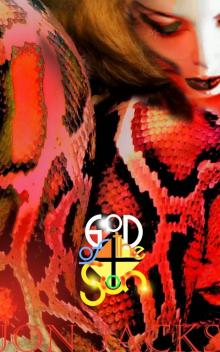 God of the 4th Sun
God of the 4th Sun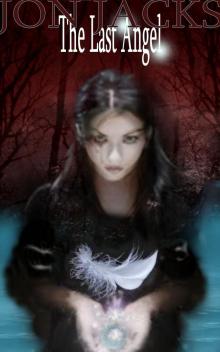 The Last Angel
The Last Angel Wyrd Girl
Wyrd Girl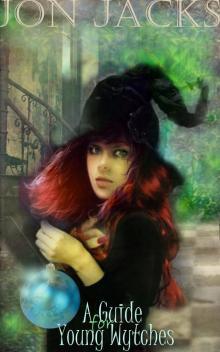 A Guide for Young Wytches
A Guide for Young Wytches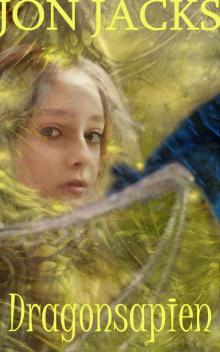 Dragonsapien
Dragonsapien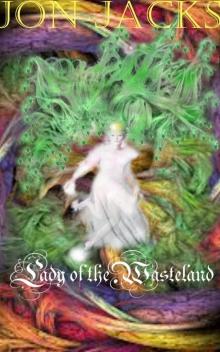 Lady of the Wasteland
Lady of the Wasteland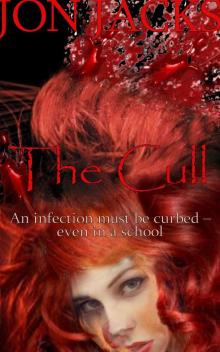 The Cull
The Cull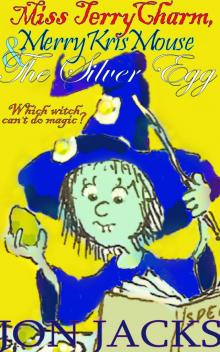 Miss Terry Charm, Merry Kris Mouse & The Silver Egg
Miss Terry Charm, Merry Kris Mouse & The Silver Egg Seecrets
Seecrets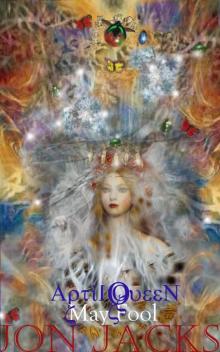 April Queen, May Fool
April Queen, May Fool DoriaN A
DoriaN A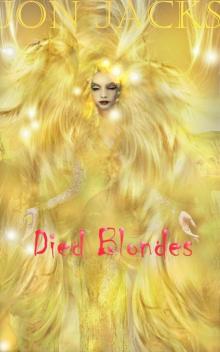 Died Blondes
Died Blondes Heartache High: The Wakening
Heartache High: The Wakening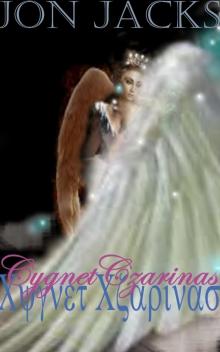 Cygnet Czarinas
Cygnet Czarinas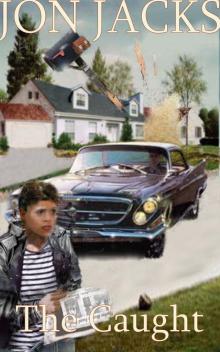 The Caught
The Caught Sick Teen
Sick Teen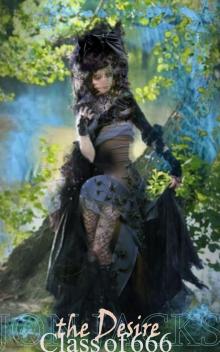 The Desire: Class of 666
The Desire: Class of 666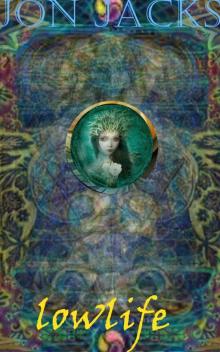 Lowlife
Lowlife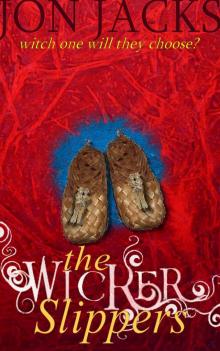 The Wicker Slippers
The Wicker Slippers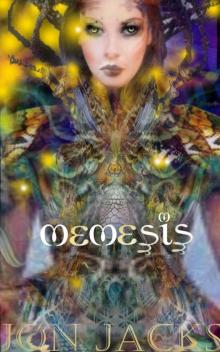 Memesis
Memesis The Rules. Book 1; The End
The Rules. Book 1; The End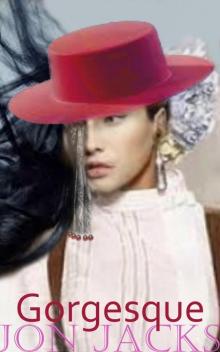 Gorgesque
Gorgesque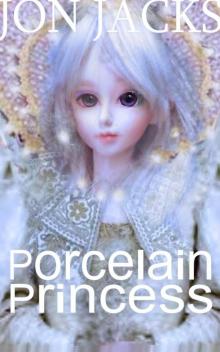 Porcelain Princess
Porcelain Princess Self-Assembled Girl
Self-Assembled Girl Heartache High
Heartache High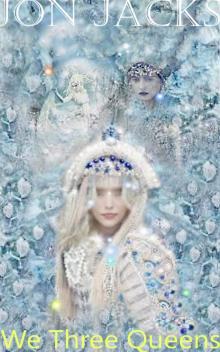 We Three Queens
We Three Queens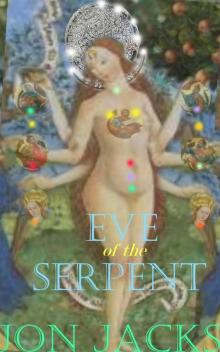 Eve of the Serpent
Eve of the Serpent Queen of all the Knowing World
Queen of all the Knowing World The Wendygo House
The Wendygo House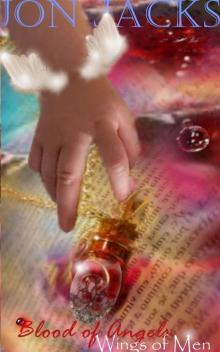 Blood of Angels, Wings of Men
Blood of Angels, Wings of Men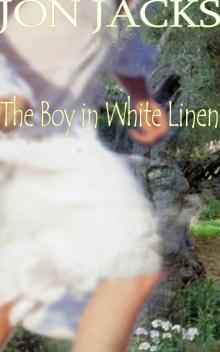 The Boy In White Linen
The Boy In White Linen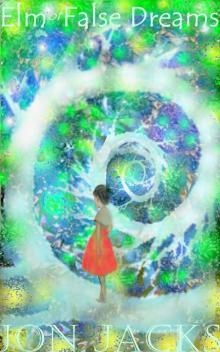 Elm of False Dreams
Elm of False Dreams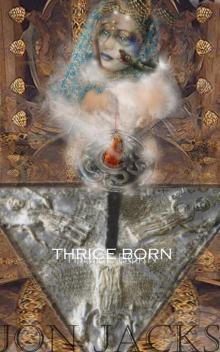 Thrice Born
Thrice Born